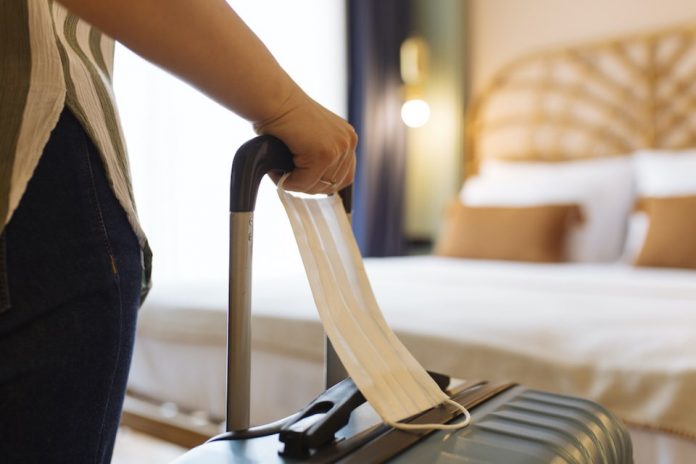
The federal government has a message for Canadians: Now is not the time to travel.
On Monday, Canada’s mandatory COVID-19 quarantine hotel stays will go into effect. The new rule is part of an effort to reduce non-essential travel and get ahead of the new virus variants — three of which have already been confirmed inside the country.
Anyone flying into Canada will be forced to stay in an approved hotel either in Alberta, British Columbia, Ontario or Quebec while they await negative test results.
Prime Minister Justin Trudeau had initially touted a hefty $2,000 stay per room, but the cost is expected to be much lower and will be set by the hotels.
A spokesperson from the Hotel Association of Canada told Global News the cost of each stay will “vary between hotels, with additional fees for meals, augmented security, supervised movement to outdoor areas, designated transportation, and additional infection control measures.”
However, the association added it “will continue to implement the advice of public health experts including the best practices provided by the Public Health Agency of Canada (PHAC) for those specific hotels.”
What can you expect?
Each privately owned hotel has agreed to meet operational guidelines and selection criteria set by the federal government.
Health Canada said it will allow people who own cars that have been parked at one of these airports to drive themselves there. Those without their own vehicles will be allowed to take either a designated shuttle bus, taxi or limousine.
Travellers will not be allowed to leave their rooms unless escorted by an official for monitored outdoor time, but all guests will be provided free Wi-Fi, as well as contactless meal deliveries to their door. Alcohol and cannabis are not considered essential, and won’t be delivered.
Try not to make a mess: toiletries will be delivered, but there will be no room cleaning service for the duration of a guest’s stay to help prevent any possible spread of infection between guests and staff members.
Masks will be mandatory for anyone staying at the hotel and will be required when speaking face-to-face with hotel staff, when opening the door to retrieve breakfast, lunch and dinner, and whenever a guest is being escorted to or from their room.
Private security firms hired by the federal government are expected to help enforce the 14-day mandatory quarantine and conduct in-person compliance visits, PHAC has said.
The agency said $2-million contracts were awarded to G4S Secure Solutions (Canada) Ltd., GardaWorld and Paladin Risk Solutions. PHAC added that the Canadian Corps of Commissionaires, an organization that hires Canadian Armed Forces veterans and retired RCMP officers, was also selected to help make in-person visits.
Anyone who tests positive will be required to stay a full 14 days, either in a “federally designated quarantine facility or other suitable location.”
The penalty for breaking the rules is high. The federal government said fines can go up to $3,000 for “a day of non-compliance,” and breaking any quarantine or isolation rules when entering Canada could land travellers a fine of up to $750,000 or up to six months in jail.
Breaking from those requirements and causing death or serious bodily harm is punishable by a fine of up to $1,000,000 or up to three years in prison.
Where are these approved hotels?
The 14 hotels listed by the federal government are:
Alberta: Calgary International Airport (YYC)
Calgary Airport Marriott In-Terminal Hotel
Acclaim Hotel
British Columbia: Vancouver International Airport (YVR)
Fairmont Vancouver Airport
Radisson Vancouver Airport
The Westin Wall Centre, Vancouver Airport
Ontario: Toronto Pearson Airport (YYZ)
Alt Hotel Pearson Airport
Fairfield Inn & Suites Toronto Airport
Four Points by Sheraton
Holiday Inn Toronto International Airport
Sheraton Gateway Hotel in Toronto International Airport
Quebec: Montréal-Pierre Elliott Trudeau International Airport (YUL)
Aloft Montreal Airport
Crowne Plaza Montreal Airport
Holiday Inn Express and Suites Montreal Airport
Montreal Airport Marriott In-Terminal
Will it work?
Experts say it is too soon to give a definitive “yes” or “no.”































